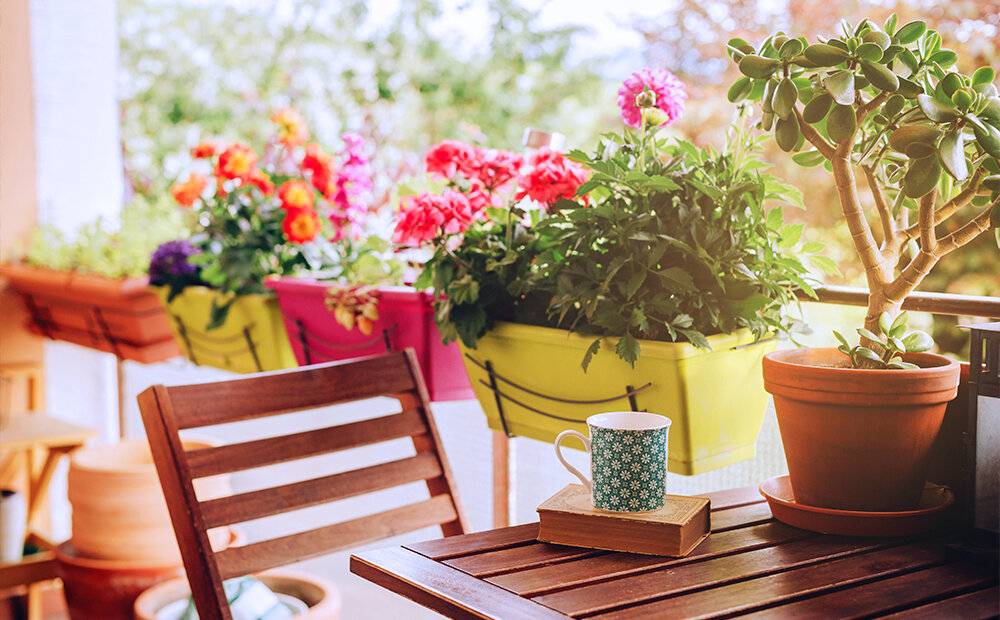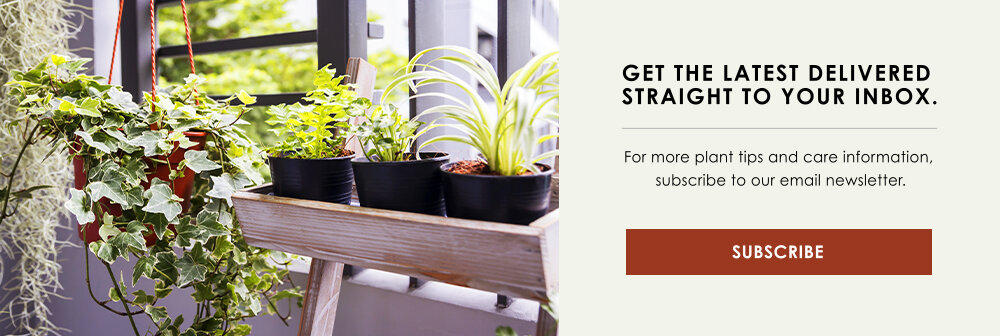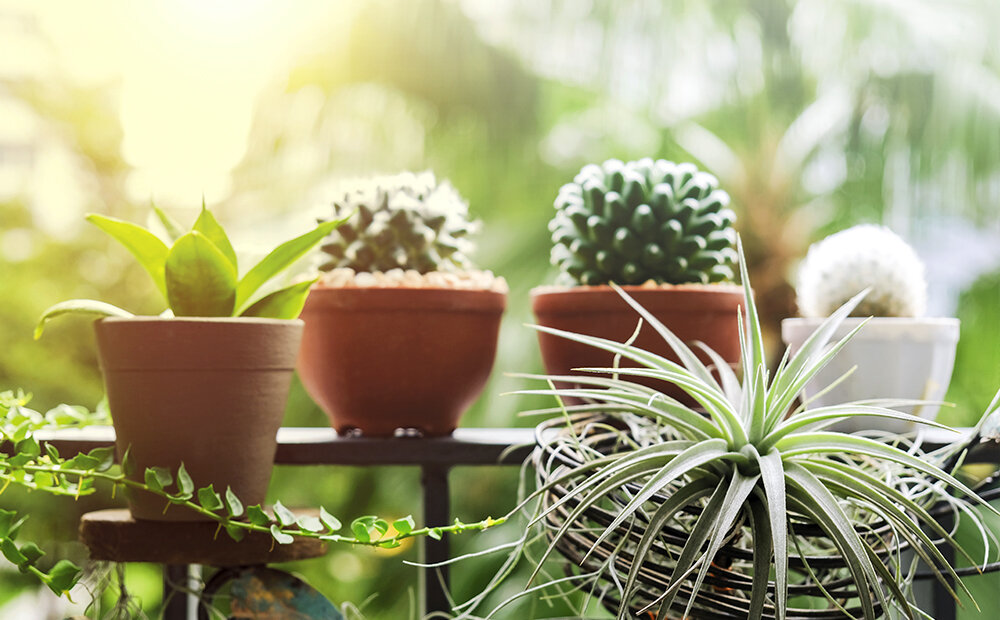APARTMENT GARDENING: HOW TO GREEN UP YOUR BALCONY
If you thought gardening wasn't an option for you just because you live in an apartment—think again! You can grow a surprising number of plants, even on a tiny balcony, with a little strategic planning. But, before you rush out to snap up some plants, there are a few things to keep in mind. Gardening on a balcony is a little different than gardening at ground level.
Here are our tips for balcony gardening for beginners in Indianapolis.
PLAN YOUR BALCONY GARDEN FIRST
Step one is to find out if there are any restrictions about balcony gardening in your building. If you live in a condo, there may be particular rules about what sorts of planters you can use, the size of the plants you can have, and weight restrictions for balconies. Even if you don't have a condo board, it's still important to check with your building manager, or a structural engineer, about the weight limits of your balcony. Plants, soil, and water get heavy very fast, and you don't want to be responsible for any damage to the building.
Step two is to measure your balcony, so you know how much space you have. These measurements will be important when you're choosing planters. If your balcony is tiny, consider going vertical. If you are going to mount a trellis or lattice to hang pots on, make sure to keep it at least 1-2" away from the wall to prevent mold and mildew from growing behind the plants.
Decide how much time you want to spend caring for your plants. Potted plants require more frequent watering, and plants on balconies may need even more since you're more likely to get more wind the higher up you are. If you don't want to spend a ton of time watering every few days, keep it simple with fewer plants in larger pots.
Once you've decided how much time you're willing to spend, its an excellent time to think about your growing conditions. Make note of what direction your balcony faces, how much sun it gets, how windy it is most days, and find out how cold it gets in your area. Our USDA zone in Indianapolis is 5b to 6a. To be on the safe side, you'll want to make sure any perennials you choose are rated for zone 3-4 since your plants will be in outdoor pots.
Gardening on balconies is basically growing in containers, however this requires special considerations about weight and types of pots you should use. Wind is a much bigger concern on a balcony, so you want to make sure you have pots that are heavy enough to stay stable when it gets windy. You may also want to find a way to secure them to your balcony. You don't want to be liable for a plant flying off your balcony in a storm and hitting a person, other property, or a vehicle.
Consider how you're going to water your plants. Your neighbors downstairs don't want a shower mixed with potting soil, so consider using deep water catch trays, or decorative pots with no holes, and set your pots with drainage holes inside them. You might also want to consider investing in or setting up your own DIY drip-watering system.
SMALL TREES FOR YOUR BALCONY
The size of trees you can manage on your balcony depends a bit on the size and height of the area. If you have a fairly large balcony, you can probably get away with trees up to 6-7' tall. If you have a smaller space, you may want to stick with shrubs instead of trees. Either way, it's safer to keep potted trees closer to the building than to the railing, and secure their pots however possible. Here are a few options for trees that can be kept in containers to decorate small spaces.
Cumulus Serviceberry can grow up to 10' tall but could be kept shorter with pruning.
Sea Green or Gold Cone Juniper are options that stay quite short.
Green Mountain Boxwood is an excellent shrub for topiary and can grow up to 5 feet tall.
PLANTS FOR BALCONIES
Alpines and succulents are excellent plants for balconies since they're hardy enough to stand up to dry and windy conditions. Ornamental grasses can give you some height variation and create a privacy screen, without fear of wind knocking them over. You could also grow vegetables and herbs, like tomatoes, peppers, lettuces, rosemary, and basil, in pots on a balcony, but they'll require a little more care and attention than other plants.
Hostas are hardy shade-loving perennials that feature lush leaves. They're great for a north-facing balcony.
Flame Grass makes a beautiful all-season privacy screen when several are grown in a row.
Stonecrop Sedums or Hens & Chicks, are excellent for balconies since they can tolerate dry and windy conditions.
Last but not least, think about how you can work seating into your balcony garden. You've created a lush space, so you'll want to make a cozy space to sit and enjoy your garden in the sky. Add some outdoor string lights for ambiance, and some comfy outdoor chairs or a couch where you can relax with a cup of tea.
If you're ready to start developing your balcony garden, measure your balcony, and then stop by our garden center. Our expert staff can help you figure out the best way to safely add plants to breathe new life into your balcony space.





